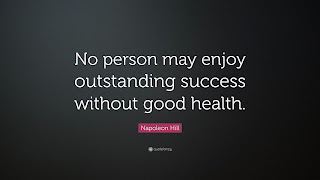WFH burnout is real. Workplace burnout doesn't just happen to people who put in long hours at the office. It's also a threat to the millions of people due to the suddenness of having to work from home. How can we “leave our work at the door” if we are no longer going out the door?
Google announced May 22 as a company holiday to tackle WFH burnout.
You know the type: the kind of eager beaver who is so “committed” that they are first to boot up the computer, last to shutdown, never takes a break, grinds right through lunch, always eager to take on a new project, months of unused vacation and personal days piled up. Our culture loves these people, considering them the very definition of the word dedication.
Don’t get me wrong. I am not against honest labour. I am not suggesting that hard work is not paramount to growth. But hard work will no more make you an inspired performer than practicing your penmanship will earn you a Pulitzer Prize for poetry.
Rest is a good thing. The benefits of rest are supported by a large body of scientific evidence. It’s not that people want to wear themselves down. While it was easier to compartmentalize your workweek with things like commutes, weekend plans, and Monday morning banter, our current situation has made those boundaries disappear. For some, isolation and for others, working at home in the presence of their families add to the stress.
As a leader, I hold my team's well-being at the heart of my motivational outlook. Before you slight well-being as too "fluffy" consider the perspective of Dr Dirk Veldhort who was adamant: "with well-being, you can create value for yourself and your organization. Without it, short-term productivity is less probable and long-term growth is almost impossible." Blindness to WFH burnout shows you are not adapting to the needs of the moment.
Realistically, there is never going to be a time when nothing is on your plate. Leaders constantly see new things to fix or act upon. Busi-ness leaders get in a cycle of setting impossible expectations of themselves and their teams.
A leader must create breathing room on a daily basis. Leaders who do less but do more of the right things are more effective.







No comments:
Post a Comment